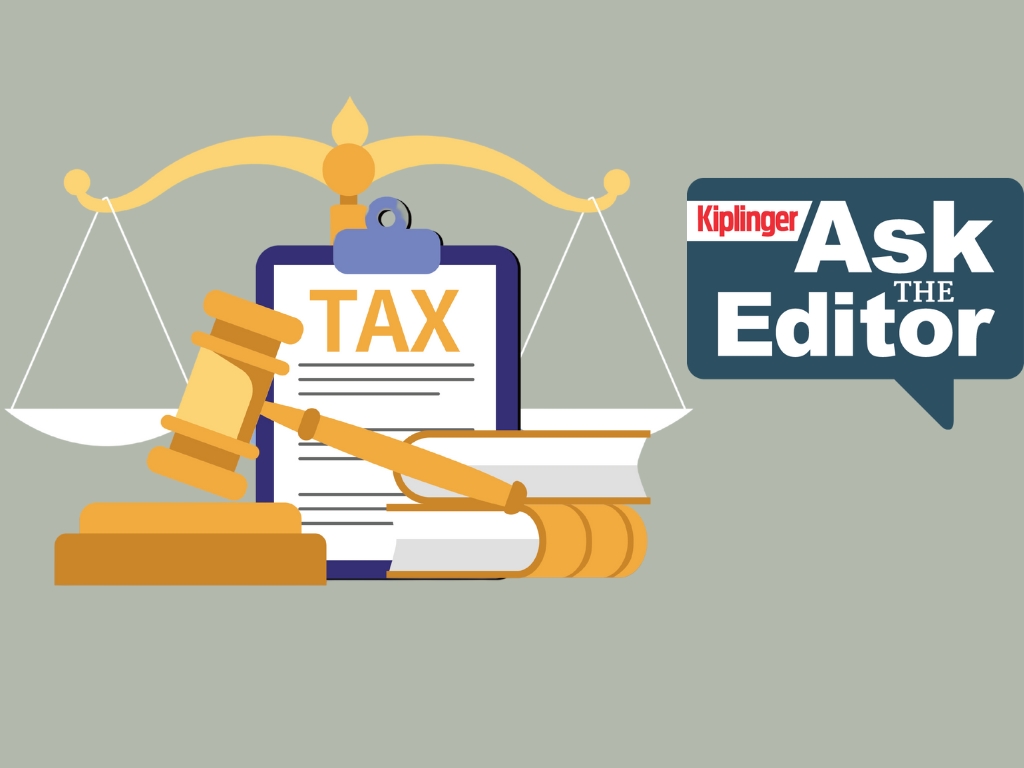Small Financial Changes to Help Build Your Wealth Faster
To grow your wealth to its full potential, start implementing these best practices today.

Developing and practicing good financial habits early in life, such as investing in a 401(k) or prioritizing your financial goals, will lead to building your wealth more efficiently and a large nest egg later in life. Strong and consistent financial planning is key in solidifying your wealth down the line.
Focused financial planning prepares you for life events you can’t necessarily foresee. Preparation requires investing in the future; however, over 75% of American workers still live paycheck to paycheck, and many are saddled with unmanageable debts, creating a financial house of cards.
To build your wealth in the most efficient way possible, here are a few things to consider.

Sign up for Kiplinger’s Free E-Newsletters
Profit and prosper with the best of expert advice on investing, taxes, retirement, personal finance and more - straight to your e-mail.
Profit and prosper with the best of expert advice - straight to your e-mail.
Pay Off Debts Now, Thank Yourself Later
Debt has become the bane of many Americans' financial lives. It reduces your ability to save and invest for the future. Too much debt of any kind can sink your budget, but credit cards are by far the most destructive.
According to FINRA’s National Financial Capability Study, one-third of Americans pay just the minimum balance on their credit cards, and the average household that carries a balance pays $1,292 in annual interest.
High interest payments send your earnings to the banks rather than into your savings and investment accounts, where you can earn returns on your capital. Ridding yourself of credit card debt allows you to seize financial opportunities. You can pay off credit cards faster by implementing the debt snowball strategy.
Debt is not always one-sided, however. In some scenarios, taking on debt in order to achieve a worthy goal, such as purchasing a house or starting a business, can be worth the long-term costs. Debt for lifestyle expenses should be avoided at all costs, however if a spending decision you make is connected to your values, there can be reason to follow through with it.
Creating a Budget Is Key to Long-Term Success
According to a U.S. financial capability report, only 46% of Americans have an emergency fund. This dangerous situation most often occurs because of a failure to budget.
Without a budget, you could end up spending all you make and utilize too much credit. Within months, lack of budgeting can easily leave you with no cash and a lot of credit card debt. These are two ills of financial planning that careful budgeting relieves.
The first person you should pay each month is yourself. When you follow this adage, you guarantee money is contributed to your emergency fund. Once your fund reaches a healthy level (three to six months of basic expenses), it's time to put additional savings into an investment account and earn returns that conquer inflation.
The more you pay yourself, the better. To maximize savings, look for ways to save on rent, insurance, vehicle costs and other recurring expenses that can easily leave you tapped out at the end of the month.
Cut Down on Non-Essential and Fixed Expenses
When it comes to growing your wealth, it is essential to create a large gap between your expenses and your income. Therefore, it is wise to cut down on your expenses. A way to do this is to minimize what you are spending on non-essentials, as well as reconsider your fixed spending.
Non-essential expenses are experiences and things that you don’t need to survive, such as dining out, entertainment costs, gifts, clothing and alcohol. By properly accounting for these expenses and trimming them from your budget, you’ll be able to move the needle toward building wealth.
It is also wise to consider housing options. Housing costs are a fixed expense and a major portion of most people’s budgets. This is particularly beneficial for renters. Through roommates, relocating and/or refinancing your rent, there are many ways renters can cut living expenses.
When it comes to house hunting, renting may seem like a wealth-conscious decision in the earlier stages of property ownership, because it avoids mortgage payments. However, in some financial scenarios, owning a house is far more beneficial in the long run, because homes tend to increase in value, build equity and provide a nest egg for the future.
The same goes for vehicles. Consider all the interest costs that come along with car loans. Driving a car that you own outright will massively help your bank account in the long run.
Invest for Your Future
With a sustainable budget and debt under control, you're ready to invest for your future. Among the many asset classes, it's important to identify which ones are appropriate for your goals, time horizon and risk tolerance. Most investors focus on mutual funds, exchange-traded funds, stocks, bonds, real estate, foreign stocks and cash equivalents.
Asset allocation refers to how you divide your funds among different asset classes. Additionally, financial advisers can help determine asset allocation according to your unique investor profile. They create an investment policy statement (IPS) detailing investment goals and appropriate strategies for achieving them.
Tax Deductions that Build Wealth
By contributing to your 401(k), traditional IRA or similar type of tax-deferred savings plan, you can significantly help reduce your current tax liability. Through contributing to these plans you are putting money away for yourself that will be excluded from your taxable income. This is a huge benefit that can increase your tax refund. These qualified retirement plans also allow the savings in your account to grow tax free. The income from your investments that isn’t being taxed, combined with the power of compounding, creates an ideal wealth building situation. (Keep in mind that you will have to pay taxes on any money you withdraw down the road, though.)
Additionally, as far as taxable brokerage accounts go, taxes on long-term gains, which are most investments held over one year, and qualified dividends have only three tax brackets, depending on your total income: 0%, 15% and 20%. Planning your investment income to fall into one these categories as much as possible can result in a major tax savings, as well as long-term wealth building benefits.
Growing YOUR Wealth Starts with YOU
You should be taking the necessary steps in building your wealth as efficiently as possible, and the only way to achieve maximum returns is to start exercising strong financial practices now.
- Avoid debt by staying on top of your finances, especially credit card bills.
- Create a budget and stick to it vehemently.
- Cut down spending on living costs, especially by avoiding excess buying. Invest now and see the returns later.
You are in full control of your financial future, and it can be realistic to build your wealth as fast as possible. Take the first steps in growing your wealth, and it will implement great financial habits for life.
Profit and prosper with the best of Kiplinger's advice on investing, taxes, retirement, personal finance and much more. Delivered daily. Enter your email in the box and click Sign Me Up.

David Flores Wilson, CFP®, CFA, CEPA is a Managing Partner at Sincerus Advisory, a Registered Investment Adviser providing holistic, fee-only financial planning and wealth management services to families and individuals in the New York Metro area and nationwide.
-
 Ask the Editor — Tax Questions on Inherited IRAs
Ask the Editor — Tax Questions on Inherited IRAsAsk the Editor In this week's Ask the Editor Q&A, we answer tax questions from readers on the rules on inheriting IRAs.
-
 I Asked Experts When It's Worth Splurging on Beauty and Skincare — and When You Can Save
I Asked Experts When It's Worth Splurging on Beauty and Skincare — and When You Can SaveSmart Shopping Experts agree that while you don't have to spend three figures on your products, some higher-priced items have value.
-
 Retiring Early? This Strategy Cuts Your Income Tax to Zero
Retiring Early? This Strategy Cuts Your Income Tax to ZeroWhen retiring early, married couples can use this little-known (and legitimate) strategy to take a six-figure income every year — tax-free.
-
 Ditch the Golf Shoes: Your Retirement Needs a Side Gig
Ditch the Golf Shoes: Your Retirement Needs a Side GigA side gig in retirement can help combat boredom, loneliness and the threat of inflation eroding your savings. And the earlier you start planning, the better.
-
 Roth IRA Conversions in the Summer? Why Now May Be the Sweet Spot
Roth IRA Conversions in the Summer? Why Now May Be the Sweet SpotConverting now would enable you to spread a possible tax hit over more than one payment while reducing future taxes.
-
 A Financial Expert's Three Steps to Becoming Debt-Free (Even in This Economy)
A Financial Expert's Three Steps to Becoming Debt-Free (Even in This Economy)If debt has you spiraling, now is the time to take a few common-sense steps to help knock it down and get it under control.
-
 I'm an Insurance Expert: This Is How Your Insurance Protects You While You're on Vacation
I'm an Insurance Expert: This Is How Your Insurance Protects You While You're on VacationHere are three key things to consider about your insurance (auto, property and health) when traveling within the U.S., including coverage for rental cars, personal belongings and medical emergencies.
-
 Investing Professionals Agree: Discipline Beats Drama Right Now
Investing Professionals Agree: Discipline Beats Drama Right NowBig portfolio adjustments can do more harm than good. Financial experts suggest making thoughtful, strategic moves that fit your long-term goals.
-
 'Doing Something' Because of Volatility Can Hurt You: Portfolio Manager Recommends Doing This Instead
'Doing Something' Because of Volatility Can Hurt You: Portfolio Manager Recommends Doing This InsteadYes, it's hard, but if you tune out the siren song of high-flying sectors, resist acting on impulse and focus on your goals, you and your portfolio could be much better off.
-
 Social Security's First Beneficiary Lived to Be 100: Will You?
Social Security's First Beneficiary Lived to Be 100: Will You?Ida May Fuller, Social Security's first beneficiary, retired in 1939 and died in 1975. Today, we should all be planning for a retirement that's as long as Ida's.